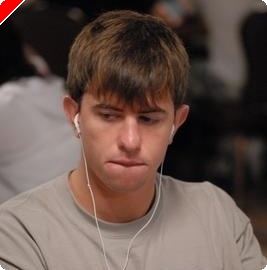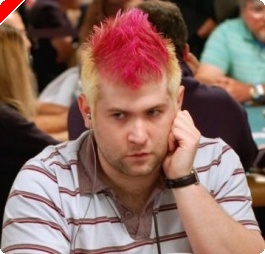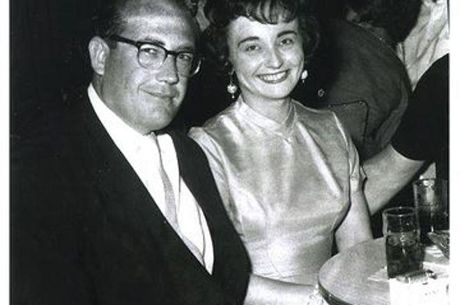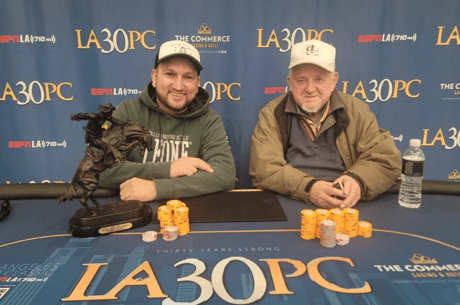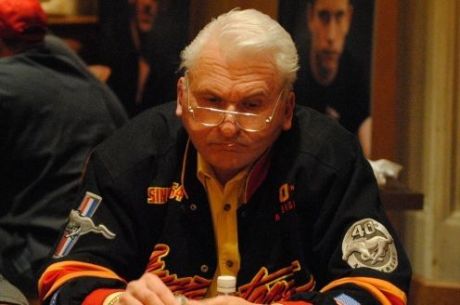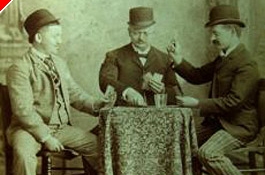From the Poker Vaults: Austin Squatty
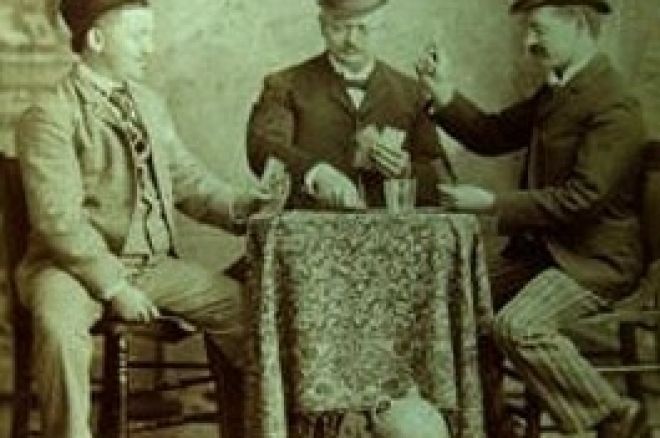
One of the most alluring aspects of poker is that many of its most colorful practitioners are just as well known for their exploits away from the tables. One such player from poker's past was John Homes Jenkins III, a sixth-generation Texan who packed a century's worth of drama into a life that lasted less than half that long.
Before he'd even graduated from high school, Jenkins published his first book, a collection of his great-grandfather's experiences as a pioneer. He also played blackjack well enough to get himself banned from several casinos in Las Vegas, but poker was the card game he enjoyed most. While attending the University of Texas, he played in a weekly home game that remained a fixture in his life long after he graduated from UT's law school.
While still enrolled at the university, Jenkins opened a shop in downtown Austin where he bought and sold rare coins. He quickly became an accomplished trader in the old Texas tradition, swapping such high-dollar items as a Bowie knife, rare wines, even a Rolls Royce. In 1971, some thieves tried to sell him an extremely valuable portfolio of some of John James Audubon's original engravings, which they'd stolen from Union College in New York, and Jenkins in turn worked with the FBI to ensure that they were captured, an experience he later wrote about in his book Audubon and Other Capers.
Four years later, he made a huge splash in the rare-books world when he purchased the famed Eberstadt Collection for a fraction of its true value. In the wake of this dramatic coup, he adopted a larger-than-life persona that belied his diminutive stature��he was barely five-feet-six with shoes on. He started wearing a Stetson hat and cowboy boots and took to smoking fat cigars. His distinctive personality became even more pronounced when he was playing poker, especially during trips to Las Vegas.
As soon as he set foot inside a casino, he metamorphosed from an antiquarian bookseller named Jenkins to a card player hailed as "Austin Squatty." The nickname captured the distinctive way he liked to sit at the table, perched high on his chair with his legs crossed "Indian style." He began wearing a jacket with this moniker stitched across the back and regaled his opponents with wild and fanciful stories. As it turned out, the show he put on was mostly a ruse, for he rarely shoved his money into the pot unless he was fairly certain it was going to be returning to him.
"He was a very conservative player," recalls Amarillo Slim Preston, who, by his own estimation, played with Austin Squatty "a million hours." "He had some leaks in his game, and that was one of them."
Hoping to disguise just how tight he was, Austin Squatty made a point of showing his opponents an occasional loose play. Throughout his poker career he raised and reraised before the flop with J-4 so often Vegas rounders began referring to the hand as an "Austin Squatty."
Like most poker players, Austin Squatty won some and lost some in cash games, but, when asked, he always emphasized the former. How he fared playing tournament poker is much clearer. Between 1983 and 1987, he won $155,855 in a variety of tournaments in Las Vegas. He made three final tables at the World Series of Poker, including a seventh-place finish in the main event in 1983, but the highlight of his career was his victory in the $2,500 Ace-to-Five Lowball event at Amarillo Slim's Super Bowl of Poker in 1985. While such statistics hardly put him on the short list of "Greatest Players to Ever Play Poker," it must be remembered that for him poker was just a hobby.
Even though he was just a frequent visitor in the world of high-stakes poker, he always acted like a distinguished member of the club. Upon arriving in Las Vegas, he would completely immerse himself in the lifestyle adopted by the top professionals. He played marathons sessions that didn't end for days. He wore a gaudy Rolex watch and carried around large amounts of cash. And he played lots and lots of golf, even though, by most accounts, he couldn't hit the ball very far.
One of his visits to a Las Vegas golf course became a story that has worked its way into that city's lore. After playing a round of golf at the old Sahara Golf Course late one afternoon, he woke up the next morning and discovered that the two $5,000 bundles of cash he'd been carrying around the day before were missing. Thinking he might have lost the bundles on the golf course, he hustled back to the country club, but when he got there he discovered, much to his dismay, that the course was already full of players. Any chance he had of finding his money now seemed hopelessly remote, but he searched the perimeter of the eighteenth green anyway, and there in plain view of all the players who had passed by that morning he found his money.
Austin Squatty did not enjoy such luck in other aspects of his life. During the 1980s, the warehouse in which he stored his priceless book collection caught fire on three separate occasions. While his insurance company was investigating the damage done by one of the fires, it was discovered that some of the items he possessed, including several copies of the Texas Declaration of Independence, were forgeries. In 1989, his reputation took another hit when the FDIC sued him for $1.3 million in connection with a loan he'd obtained for an oil-drilling operation.
The man's death proved as intriguing as his life. On April 16, 1989, some fishermen discovered his body near a public boat ramp on a stretch of the Colorado River between Austin and Bastrop, Texas. All evidence pointed towards a murder. He had been shot in the back of the head. The passenger-side door of his gold Mercedes was found ajar. All the cash and credit cards had been taken from his wallet. Still, Con Keirsey, the sheriff of Bastrop County, ruled the death a suicide.
To explain why a gun was never found at the scene of the crime, Keirsey created what came to be known as "the plastic-Coke-bottle theory." He believed Jenkins attached the gun to a large plastic Coke bottle riddled with holes. After shooting himself, Jenkins dropped the bottle into the river, and it floated downstream until it filled with water and sank. It was almost as if the sheriff felt compelled to create a story to explain Jenkins's death that would rival the way he had lived his life, with equal amounts of drama and mystery. While he only played the game seriously for half a decade, Austin Squatty made enough of an impact on the world of poker that his exploits at the tables would be mentioned in every single obituary written about him.
Editor's Note: Storms Reback co-wrote All In: The (Almost) Entirely True Story of the World Series of Poker, and collaborated with Sam Farha on Farha on Omaha: Expert Strategy for Beating Cash Games and Tournaments. To catch up on the first two articles in Storms Reback's new series about the colorful history of poker, click here and here.

